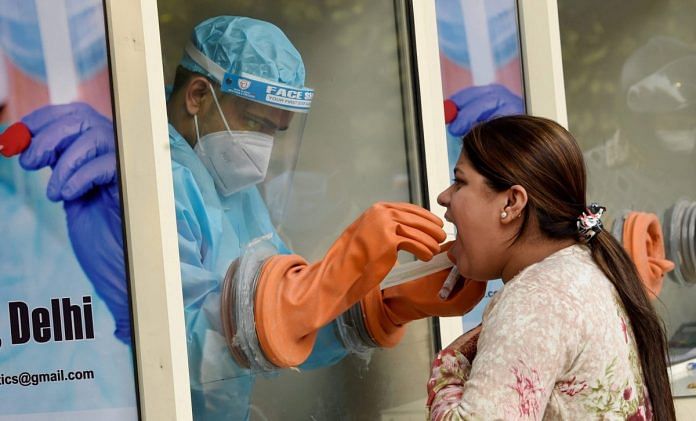
New Delhi: With the Covid-19 caseload having increased in states such as Maharashtra and Kerala by over 70 per cent, the Delhi government has decided to take a slew of preventive measures to prevent any such surge in cases in the national capital.
According to sources in the Delhi government, the administration has been advised to not lower the guard and adopt cluster-based genome sequence testing and surveillance strategy to prevent any fresh outbreak of coronavirus cases here.
This comes on the backdrop of a meeting of Delhi Disaster Management Authority (DDMA) that took place Monday morning. Delhi Lieutenant Governor Anil Baijal had chaired the 17th meeting of DDMA.
Elaborating on this, a senior government official said, “Apart from the mutant variants from UK, South Africa and Brazil, the newly identified local mutants that are reportedly highly contagious and virulent, was a major cause of concern for public health experts during the meeting. To handle them (mutations), the Delhi government will resort to cluster-based sequence testing.”
The official further said testing, tracing and isolating will be intensified.
Sources said that officials and experts present at the meeting discussed ways to ensure strict enforcement of Covid compliant behaviour on the ground.
“Surveillance of super spreading events and sustaining current levels of RT-PCR testing and tracking was among the other things that was decided during the meeting,” a government source told ThePrint.
Also read: Delhi scales up vaccination centres as those above 50 are next in line for Covid shot
Vaccination efforts to be speeded up
Directions regarding speeding up of vaccination efforts and an aggressive IEC (Information Education Communication) campaign to overcome vaccine hesitancy were also issued during the meeting.
Delhi is among the seven states and union territories where the vaccine coverage for healthcare workers is less than 50 per cent.
According to the union health ministry’s provisional data, only 48.2 per cent of Delhi’s healthcare workers had been immunised until Saturday evening when the vaccination drive closed.
The Delhi government’s final data, however, states that 1,31,854 healthcare workers received the shot until Saturday evening, accounting for 50.7 per cent of nearly 2,40,000 registered beneficiaries.
A public health expert privy to development, requesting anonymity, said: “Given the number of health workers coming forward for vaccination is still relatively lesser especially in comparison with frontline workers, an IEC campaign should have started long ago. There is still a lot of skepticism among a lot of people.”
The expert added that there was an urgent need to counter rumours about the vaccines.
Also read: Good news from Delhi — Covid cases & fatalities see decline in 2021, 90% hospital beds vacant
Metros and DTC buses to run at limited capacities
In another significant development, it has also been decided that the Delhi Metro and DTC buses will run at the previously fixed limited capacities for now.
“It is a vigilant wait and watch measure for another two weeks at least,” an official privy to the developments in the meeting confirmed to ThePrint.
The DMRC had recently urged the central government to allow metro authorities to have more people travel by the metro and remove restrictions regarding the alternate seating due to overcrowding outside stations and financial constraints.
Among those who attended the meeting include the Delhi Chief Minister Arvind Kejriwal, deputy CM Manish Sisodia, Health Minister Satyendar Jain, health secretaries, revenue department officials, Delhi chief secretary, Delhi Police commissioner, and public health experts from ICMR.
(The report has been updated to reflect that Delhi Lieutenant Governor Anil Baijal had chaired the 17th DDMA meeting.)
Also read: No aid from Centre as Delhi Metro battles Covid losses of Rs 2,856 crore, DMRC chief says

COMMENTS